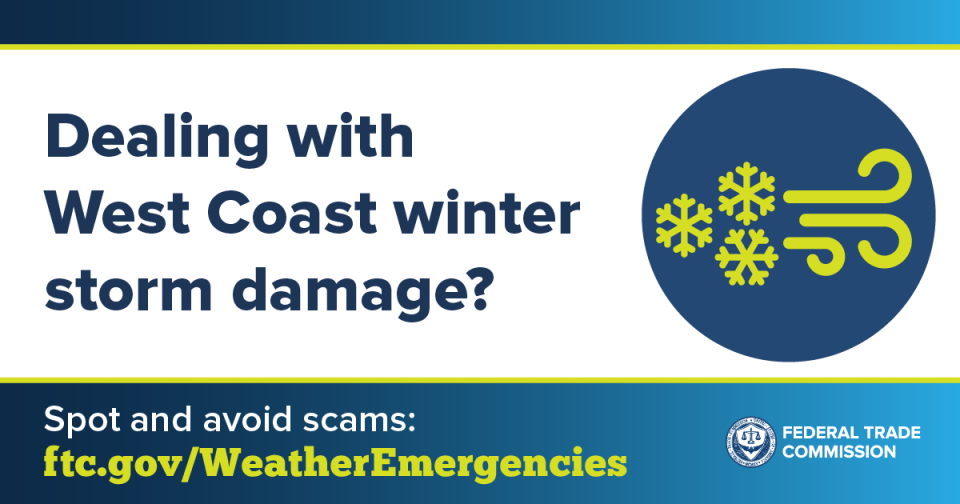As record rainfall and heavy winds devastated the West Coast, you can bet that scammers are standing by, ready to get started after the storm. How can you spot the scammers?
Whether you’re looking for help to remove a fallen tree, you need a company to clean up water damage, or you’re waiting to get your power back on, scammers will tell you all kinds of stories to convince you that they’re there to help, but they’re really after your money and personal information.
Here are some ways to avoid disaster recovery scams.
- Be skeptical of anyone promising immediate clean-up or repairs. Some may quote outrageous prices or demand payment up front. If they refuse to give you copies of their license, insurance, and a contract in writing, don’t hire them.
- Spot utility imposter scams. Scammers pretending to be your utility company work year-round, but after a storm, they might seem more convincing. They might call or knock on your door saying they need to repair or replace equipment. Then they’ll ask you to pay with a wire transfer, gift card, payment app, or cryptocurrency. Don’t pay them. That’s a scam.
- Know that FEMA doesn’t charge application fees. If someone wants money to help you qualify for FEMA funds, it’s a scam. Getting the FEMA Mobile App will give you information and alerts.
Learn more at ftc.gov/WeatherEmergencies. Then share the information with friends and family to help them avoid losing money, too. Spot a disaster recovery scam? Tell the FTC at ReportFraud.ftc.gov.


Thanks for the heads up, very good info.